“Godfather” Star Was the First Person to Be Banned From the Oscars—Here’s Why

When Will Smith slapped Chris Rock during the live Oscars telecast in 2022, audiences—both the audience present in the Dolby Theater and the millions watching at home—were shocked, and it hardly seemed surprising when, days later, the Academy of Motion Picture Arts and Sciences announced that Smith’s action had earned him a decade-long ban from Academy events. But while Smith’s banning may be among the most high-profile in Oscars history, it wasn’t the first. Nearly two decades earlier, Carmine Caridi of 1974’s The Godfather Part II and 1990’s The Godfather Part III was expelled from the Academy and barred from attending future Oscar ceremonies for a far different reason. Read on to find out more.
READ THIS NEXT: 7 Oscar-Winning Movies That Are Offensive by Today’s Standards.
Caridi had roles in both Godfather sequels.
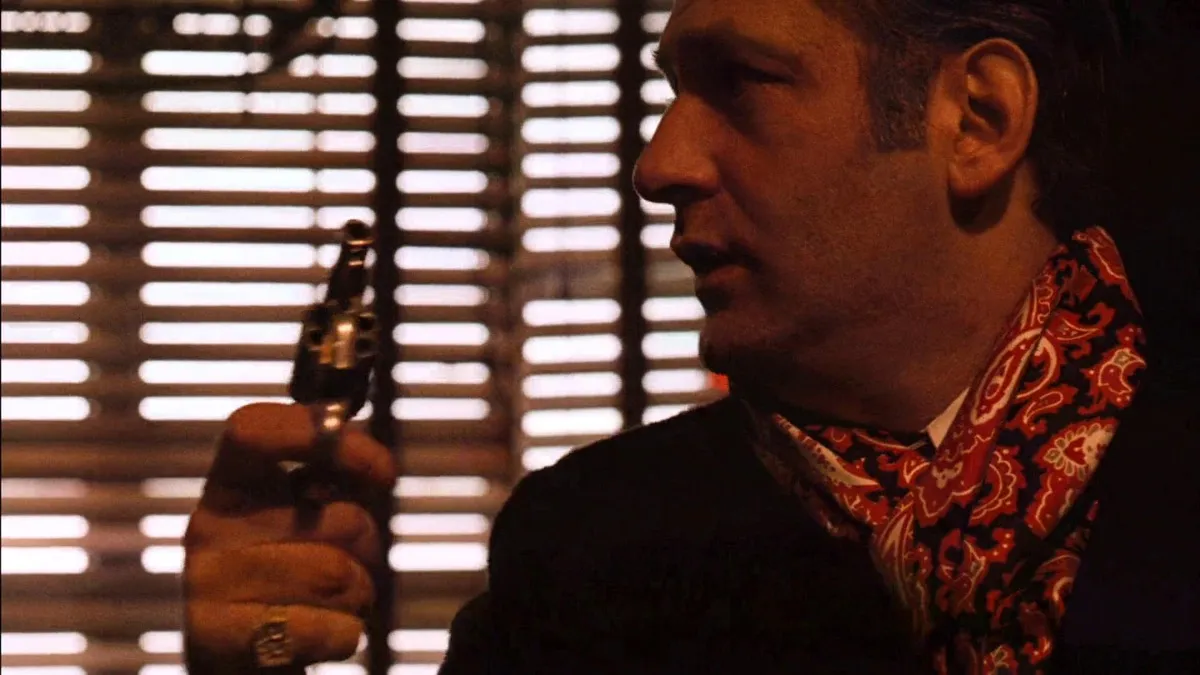
New Yorker Caridi had only a handful of credits to his name when he became director Francis Ford Coppola’s first choice to play mobster Sonny Corleone in The Godfather—at least according to The Kid Stays in the Picture, the 1994 memoir of famed film producer Robert Evans. The role eventually went to James Caan, and the 2021 book Take the Gun, Leave the Cannoli: The Epic Story of the Making of The Godfather tells a different story, saying that he was always Coppola’s favorite for the part.
Regardless, Caridi still became a part of the family. In 1974’s The Godfather Part II, he played Carmine Rosato, a power-hungry member of a crime family that went on to challenge the Corleones, and he returned to the saga for 1990’s The Godfather Part III, playing Chicago crime boss Albert Volpe.
The late actor’s decades-spanning career encompassed dozens of other films, in which he mostly played either criminals (1991’s Bugsy) or cops (1981’s Prince of the City).
He got in trouble with the FBI for media piracy.
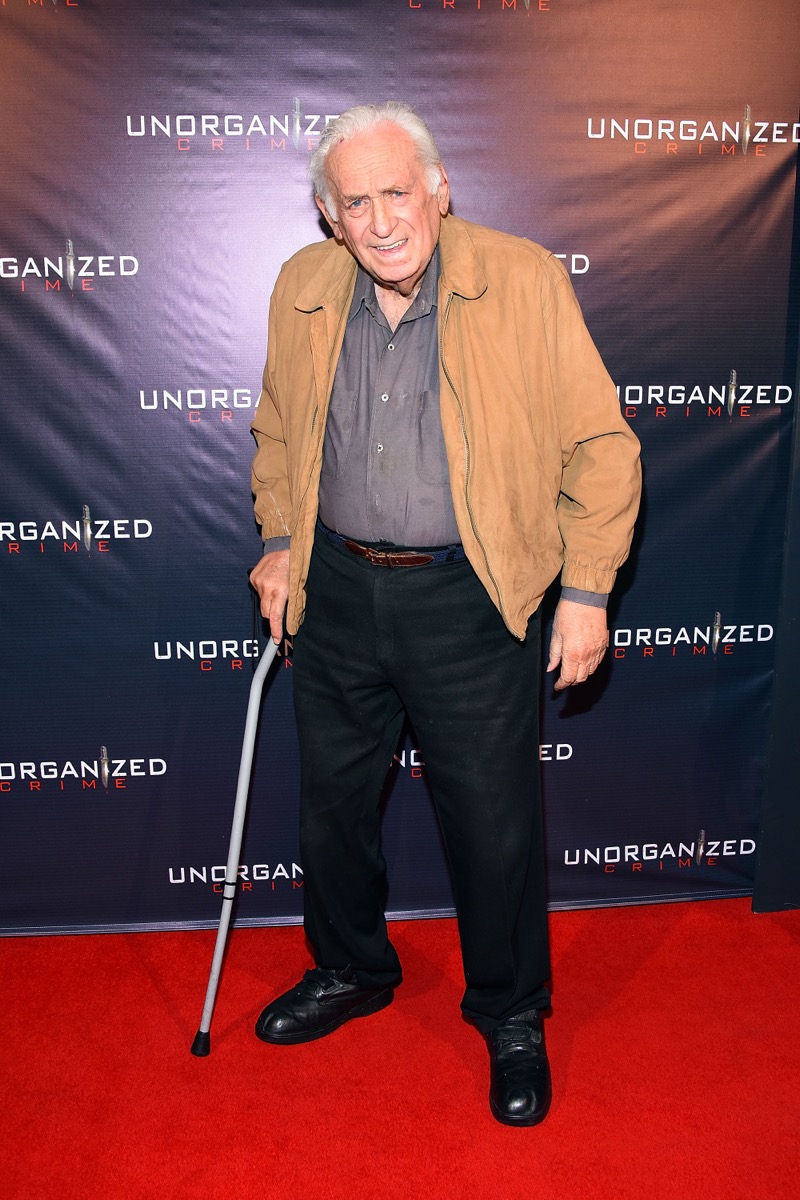
Caridi’s career success eventually earned him membership in the Academy of Motion Picture Arts and Sciences, the organization that hosts and hands out the Oscars every year. As a voting member of the group, he had access to “screeners”—recordings of movies in awards contention, distributed to voters for awards consideration. The actor evidently enjoyed this perk a little too much, and, like one of his characters, it eventually landed him in hot water with the feds.
As reported by The Hollywood Reporter, while living in Los Angeles in the late ‘90s, Caridi was introduced to Russell Sprague, a Chicago-area movie fan being shown around L.A. by another cast member in The Godfather, Part III. After Sprague fixed Caridi’s broken VCR, the two became friendly, and eventually, the actor agreed to share his screeners with a fellow cinema geek—an act expressly forbidden by Academy bylaws. Caridi also admitted in his 2017 THR interview that he had also been sharing the wealth with people “who couldn’t afford” to see every film.
Unfortunately for Caridi, Sprague was no mere movie buff. Over the course of five years, the actor sent him VHS screeners of more than 150 movies. According to a 2004 article in The Los Angeles Times, instead of simply enjoying them at home, Sprague digitized the screeners and uploaded them to the internet. The illegal copies spread across the world, eventually catching the attention of movie studio Warner Bros., who alerted the FBI.
Federal agents were able to use unique watermarks the film studio placed on the screener copies to trace the leaked films back to Caridi, who was quick to cooperate, pointing the finger at Sprague in exchange for immunity. The investigation ended with Sprague’s arrest in January 2004.
He was the first person to be kicked out of the Academy.
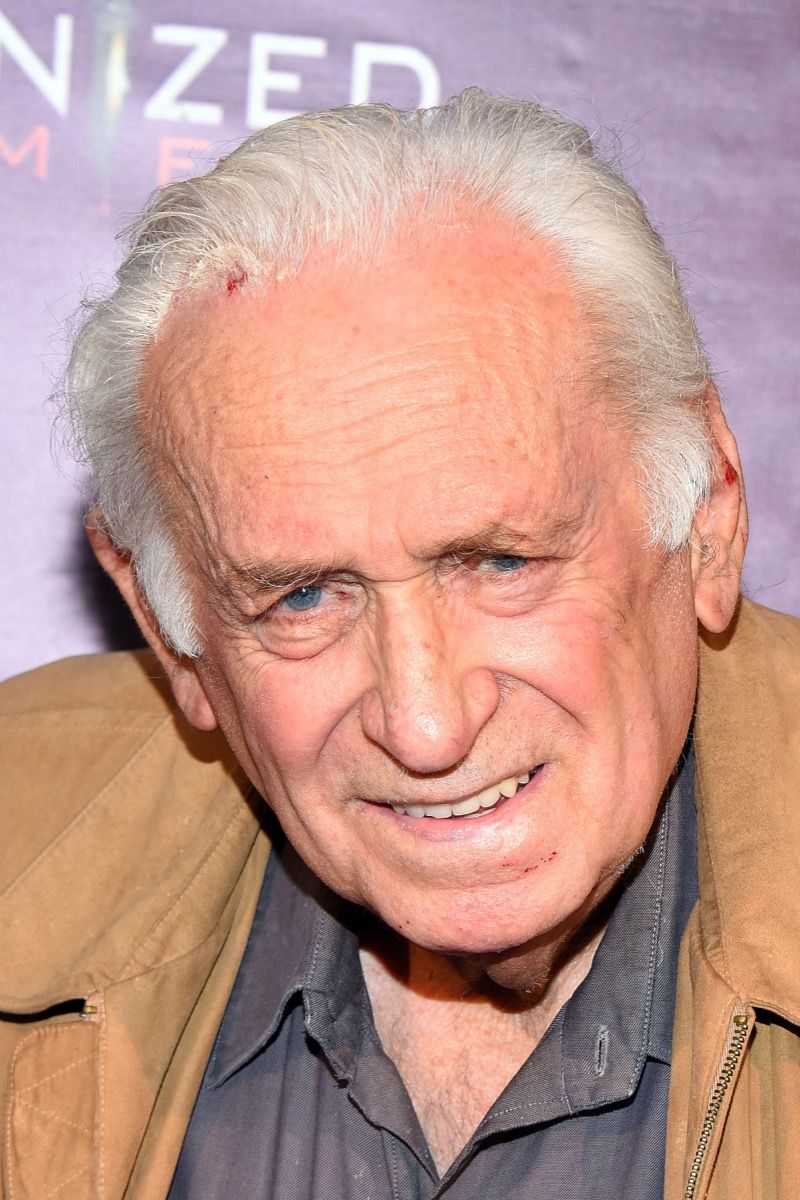
On Feb. 3, 2004, the Academy’s Board of Governors voted unanimously to enforce the screener agreement signed by all of its members and expel Caridi, a fate that also barred him from attending future Oscar ceremonies. Although they voted to keep the name of the banned member confidential, according to a contemporary Today article, FBI officials revealed that the then-70-year-old Caridi had admitted to his role in leaking the screeners.
“I don’t blame the Academy,” Caridi told THR 13 years later. “I did violate their law.” The actor was also sued for infringement by both Columbia Pictures and Warner Bros.
For more celebrity news sent right to your inbox, sign up for our daily newsletter.
He continued to receive screeners (and lend them out) until he died.
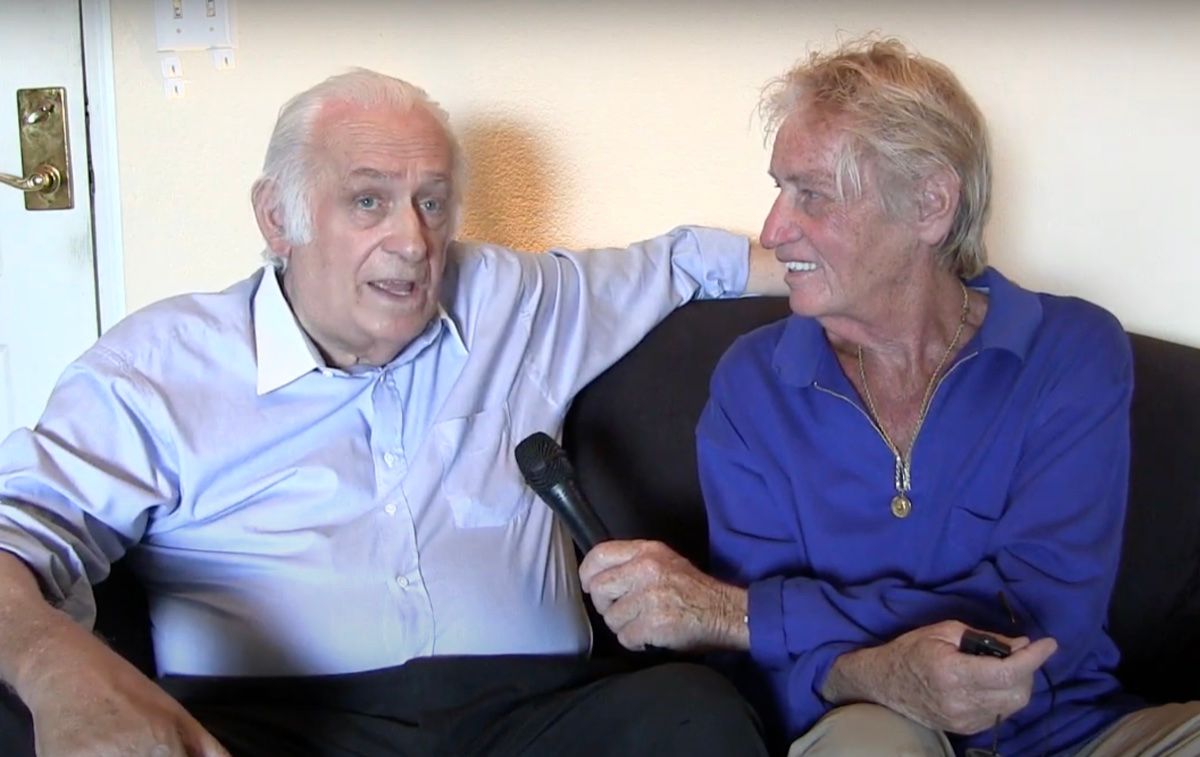
Although he was fined the maximum penalty and ordered to pay $300,000 plus attorney’s fees to each studio, by 2017, Caridi had shrugged off the financial and professional consequences of sharing the screeners. “I knew I was never gonna pay a dime,” he told THR, “because I didn’t have it.” He was still a working actor at the time of the interview, and still received screeners, albeit from the Screen Actors Guild rather than the Academy, reportedly adding in front of his gasping managers, “I lend them to my neighbor.”
Caridi is no longer the only expelled member of the Academy.
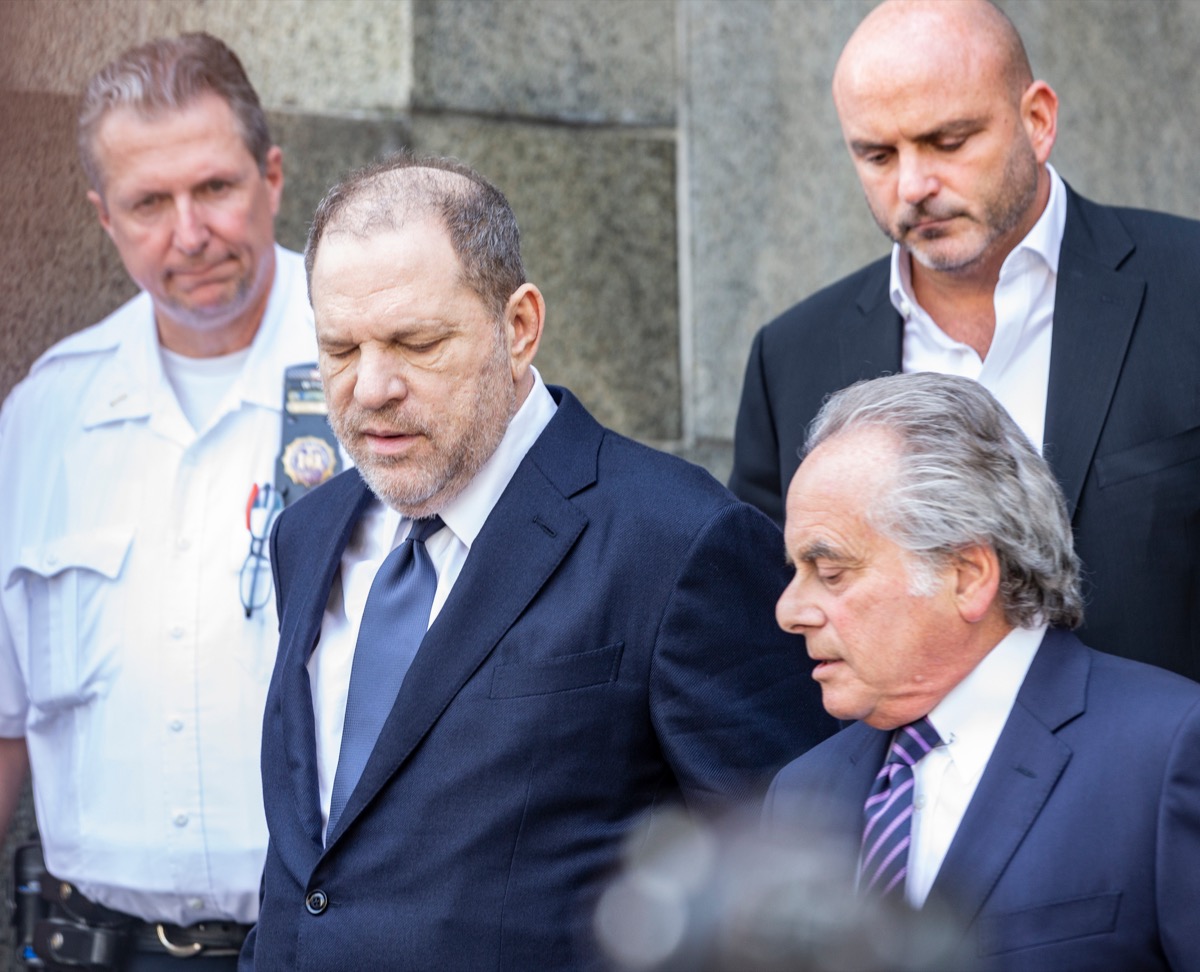
By Caridi’s 2019 passing at age 85, he was no longer the only person to be officially shunned by the Oscars. Following an avalanche of sexual assault allegations against Harvey Weinstein, the Academy called an emergency meeting on Oct. 14, 2017, voting for the producer’s immediate expulsion. In light of the allegations, a new Standard of Conduct was adopted by the organization in December 2017, stating (via THR), “There is no place in the Academy for people who abuse their status, power or influence in a manner that violates recognized standards of decency.”
In May 2018, the Academy’s Board of Governors also voted to oust Bill Cosby and Roman Polanski under the new Standard of Conduct. And in 2021, Capote cinematographer Adam Kimmel became the most recent member to be expelled following a Variety investigation uncovering his status as a registered sex offender.